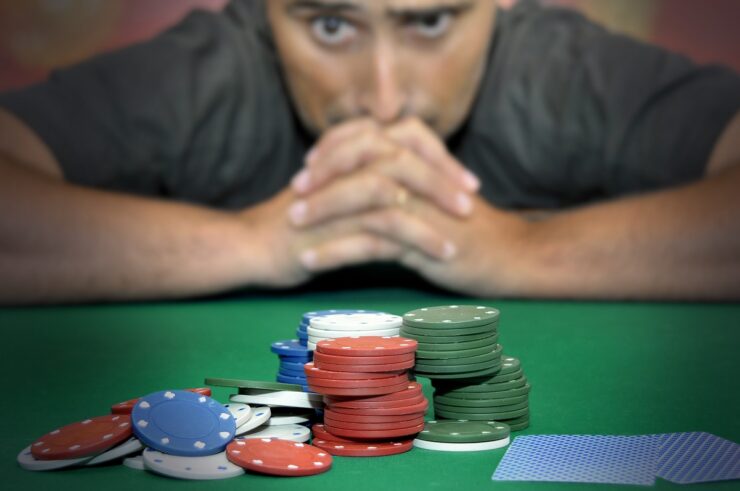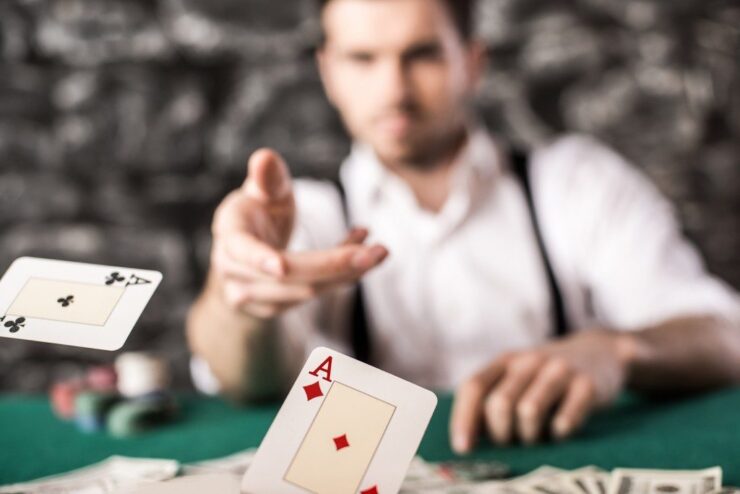Gambling has been a popular recreational activity in many parts of the world. People gamble because they enjoy the thrill associated with the game. Others enjoy it because they get an opportunity to show their skills. With the advent of online Casinos, the way in which people gamble has undergone a rapid change. People can now gamble from the comforts of their homes, and if you too want to enjoy such a gamble, you can go to bestcasinositesonline.
What Is Pathological Gambling?

Gambling is not only about enjoying games and winning money; there is a huge negative implication associated with wagering, and this is known as pathological gambling.
A pathological gambler is a person who continues to gamble even after he has lost a lot of money. There are primarily two reasons why some people show such signs while others do not.
The Problem Of Impulse Control
An impulsive person is one who performs an activity without putting much thought into it. An impulsive person does not think much of the consequences of his actions. For instance, a shopaholic is an impulsive person. Such people will continue to shop even when they have no money.
These people will buy things even when they do not need those things. Much like a shopaholic, a problem gambler gambles just because it gives him pleasure. He does not have the mental faculties to discern that gambling is bad for him and that he could go bankrupt if he continues to bet money.
Most humans are capable of impulse control, and unlike animals, the frontal cortex of the human brain is large. This large frontal cortex allows humans to rationalize before they act. Most people weigh the pros and cons of a decision before they act; however, most gamblers fail to analyze, and they act before thinking.
The Problem Of Addictive Behavior

Most psychologists associate the problem of pathological gambling with addiction. So much like a drug and alcohol addict, a gambler is also an addict. Addicts behave in a certain way because the object of addiction, that is, alcohol or drugs, gives them immense pleasure.
Likewise, for pathological gamblers, gambling gives them more pleasure than anything else. However, the major problem of addiction is that an addict wants to increase the dose of the addictive substance with time. So an alcoholic will demand more alcohol, a drug addict will demand more drugs, and a gambler will bet more often with time.
The Problem Of Thrill Seeking
People can seek thrill from activities like adventure sports. The feeling of thrill and excitement is linked to a rush of a hormone known as adrenaline. Some people experience thrill when they gamble, and the thrill associated with gambling is so high that these people continue to bet money even if they are losing continuously.
What Is Alexithymia?
This is a condition that is characterized by the inability to feel one’s own emotions, the incapacity of reflective thinking, which is essential for social life, the lack of emotional intelligence etc.
The predisposition to such conditions stems from a person’s childhood environment. So if a child is not given adequate attention and emotional response, he might grow up to have symptoms of Alexithymia.
The Link Between Alexithymia And Pathological Gambling
A Coping Mechanism
Many psychologists link a lack of emotional processing with a coping mechanism that pathological gamblers develop. People develop coping mechanisms to deal with shock and grief in life. People become numb to pain when they have been hurt or let down too many times.
Likewise, problem gamblers also feel hurt when they lose money initially. They also understand that their actions are hurtful to their friends and family. However, since they are unable to control their addiction, they end up becoming numb to their own feelings and also the feelings of others.
A Lack Of Emotional Intelligence
Another way in which pathological gambling is linked to a lack of emotional processing is emotional intelligence. Emotional intelligence is the ability of a person to sense their own emotions and also the emotions of others. So an emotionally intelligent man will realize quickly that he is angry, and he will not take any decision till his anger subsides.
A person who suffers from Alexithymia lacks emotional intelligence. These people do not realize that they are being irrational and impulsive, and hence there is no attempt to check the impulsive behavior. Again these people do not realize that their actions are hurting their loved ones. So they continue to gamble even at the cost of being in debt.
Studies linking Alexithymia With Pathological Gambling

Studies have shown a positive correlation between individuals who cannot process emotions and the habit of gambling beyond control. The researchers asked questions to two groups of people. One group had normal individuals, and the other group had people who had alexithymia-like problems.
Both groups were asked questions like did they borrow money to wager a bet or did they bunk college or work just to take part in gambling. Most people who responded in affirmative to these questions were in the group who had alexithymia-like symptoms. Thus, these studies established a link between pathological gambling and an inability to process emotions.
Conclusion
There are many factors that predispose a person to impulsive betting. The family environment and social milieu have a major role to play. And if wagering money is not stigmatized in society, problematic betting behaviors are more prevalent.
Problem gambling is harmful not only for the person who is addicted to wagering but also for his near and dear ones. An addict ends up wasting all his resources for pleasure. However, such players are not good even for online Casinos as most of them do not have the ability to pay the money they have lost in betting. So many online sites have analytical tools to identify problem gamblers. Most of these tools keep track of the time spent on a gambling site, the number of losses registered etc.


